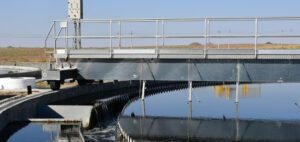EBRD finances major wastewater treatment plant in Kazakhstan

The EBRD said it is extending a sovereign loan of up to KZT 47.4 billion (€96.4 million) to state-owned JSC Aqtobe Su-Energy Group, a company responsible for centralised water supply, wastewater treatment and district heating in the city.
The loan, which represents the EBRD’s largest municipal project in Central Asia to date, will also finance the construction of a sludge treatment facility with a biogas-fuelled power generation unit.
The new treatment plant will replace the current facility, which was commissioned in 1984 and is now obsolete, and will process up to 100,000 m3 of contaminated water each day – enough to satisfy the needs of the 600,000 people living in Aktobe.
The project will introduce modern wastewater treatment technologies, which will help to improve the quality of liquid waste discharge, known as effluent, in line with Kazakhstani and European Union standards, added the EBRD.
The proposed sludge treatment facility, which includes a waste-to-energy unit producing green energy to partially cover electricity consumption needs, will eliminate odour-related problems and help to reduce annual greenhouse gas emissions by 23,000 tonnes of CO2 equivalent.
It is expected that, once operational, the wastewater treatment plant will become a model that can be replicated at other municipal water utilities in Kazakhstan.
Nearly a third of Kazakhstan’s cities do not have proper wastewater treatment facilities.
With €9.85 billion invested in the country to date through 312 projects, Kazakhstan is the EBRD’s largest and longest-running banking operation in Central Asia.


















